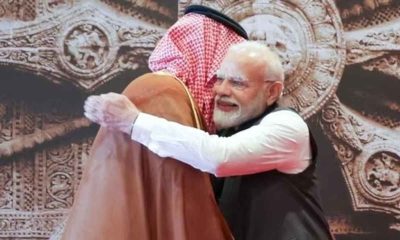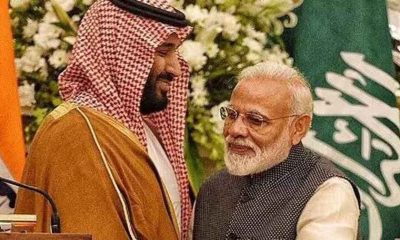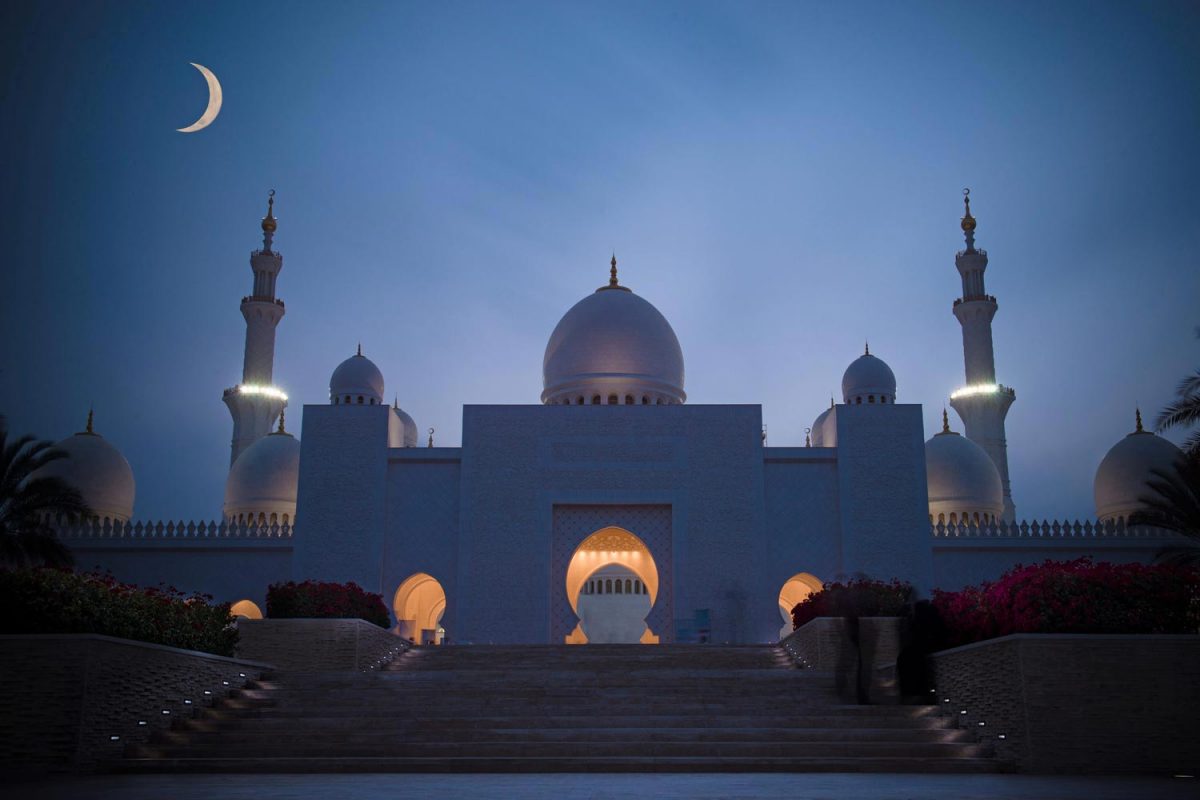Latest world news
Indians in Saudi Arabia to be hit by “dependent tax”
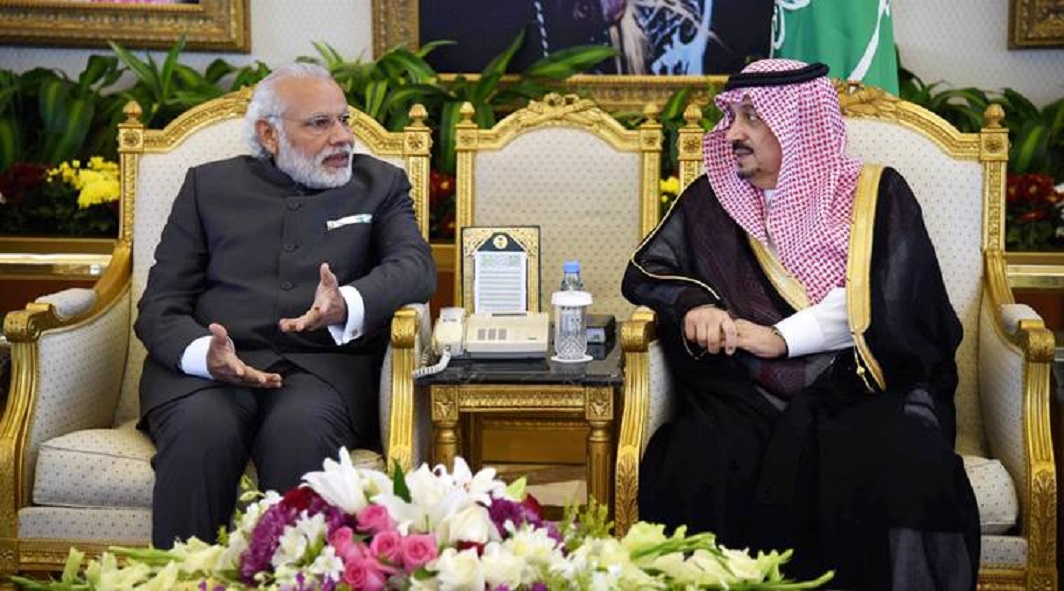
[vc_row][vc_column][vc_column_text]Falling economy forces Riyadh to impose new taxes
The Saudi government, faced with growing economic crisis due to low oil prices, war against Yemen, providing Army for protecting Bahrain government from opposition onslaught and branding itself as “leader of Muslim world”, has started tough measures against expat workers in the Kingdom.
From July 1, every expat living with his family in that country will have to pay 100 riyals (approximately ₹1,723) for each member as “dependent fee” every month. The fee amount will gradually increase by 100 riyals each year till 2020, meaning that an employee will then have to shell out 400 Saudi Riyals for each dependent every month. An employee living with wife and two children, in 2020, will have to pay 1200 riyals (Approximately ₹21,000 with present exchange rates) every month as dependent fee.
Saudi Arabia gives family visa to anyone with a salary of 5000 riyals (approximately ₹90,000) and above. The average employee would hardly be able to afford keeping his family in the Kingdom.
There are nearly 41 lakh Indians in Saudi Arabia, the largest expat group in that country. This is also the largest number of Indians living in a single country abroad. Ten lakh of them are from Andhra Pradesh and Telangana.
An Indian expat living in Dammam recently said that some families have made plans to return to Hyderabad as they cannot afford to stay there any longer.
According to migrant rights activist Bheem Reddy Mandha, several families have already returned to India in the past four months. He was quoted saying “the men have become forced bachelors”.
Reports indicate that life in Saudi Arabia is becoming tougher. From July 1, the day when GST will be implemented in India, prices of beverages will increase by 100 percent. Heavy Gunah (sin) tax on tobacco products has also been recently implemented.
In recent months a large number of foreign workers were laid off because of the fall in crude oil prices. Thousands of workers from India, Pakistan, Bangladesh and Philippines faced hunger due to non-payment of salaries. Indians employed in construction, Information Technology, medical infrastructure and other sectors are believed to be rethinking their plans on staying back in that country.
To a query on the probable impact on Indian expats a senior official in the Ministry of External Affairs said nothing could be said as yet. But it will affect all expats, he added.
Ironically, the hit to Indians comes after Prime Minister Narendra Modi’s April visit to Saudi Arabia where King Salman conferred him country’s highest civilian award – the King Abdulaziz Sash. During the visit Modi also addressed Indian workers and heard their grievances.
The new taxes were announced weeks after US President Donald Trump visited Saudi Arabia signing bilateral deals worth tens of billions of dollars. A Saudi citizen, most probably living outside, criticized “Trillions for Trump and taxes for citizens”.
Saudi activist Essam al-Zamel wrote on his twitter account “after the selective tax, which come into effect in a few days, whoever smokes two packs of cigarettes a day will pay around 1500 riyals a month, equivalent to a car payment”.[/vc_column_text][/vc_column][/vc_row]
Latest world news
Bigg Boss 14 contestant Rahul Vaidya struggles walking in knee deep water, compares Dubai rains with Mumbai floods
Singer and TV personality Rahul Vaidya was recently stranded in the Dubai rains.

Rahul Vaidya, who was in Dubai ahead of his show which was scheduled to take place today, left the country due to heavy rains and reached Kolkata. The artist shared on social media his encounters in the UAE city, including challenges like walking through knee-deep water. Rahul provided an update regarding the heavy rainfall in Dubai on his Instagram profile.
The Bigg Boss 14 contestant revealed that he was in Kolkata and prepared to do an evening performance. Recalling the terrifying period he went through, Vaidya said there was a lot of confusion and panic in Dubai. The situation was similar to that when heavy floods hit Mumbai in 2005.
Vaiday also posted seval other images and videos of cars that were underwater and flooded roadways. The Bigg Boss 14 contestant, who shared his ordeal, claimed that even though it had just rained for two hours, the situation was dire.
In one of the video, which went viral he can be seen struggling in walking in knee-deep water. He can be also seen holding his sneakers in one hand and with other hand he was seen managing other things.
This is the result of the two hours of rain that it had, he can be heard saying in the video. Vidya also said he dosen’t believe Dubai is accustomed to a lot of rain. Everything had stopped working, he remarked.
After taking part in the first season of the singing reality show Indian Idol, Rahul Vaidya gained widespread recognition. In addition to Bigg Boss, he took part in Khatron Ke Khiladi 11.
Meanwhile, heavy rains that triggered flooding in the UAE and Bahrain, which left 18 people dead in Oman on Sunday and Monday, have paralyzed the financial hub of the Middle East, Dubai.
A lot of incoming flights were diverted from Dubai’s international airport because of the rain. At 7:26 p.m., the busiest airport in the world for foreign visitors stopped accepting new arrivals; a gradual resumption was announced for more than two hours later.
Images of planes navigating flooded tarmacs are making the rounds on social media.
According to pictures shared on social media, the flagship malls Dubai Mall and Mall of the Emirates both experienced heavy floods, while at least one Dubai Metro station had water up to the ankles.
There were several road collapses, severe flooding in residential areas, and numerous reports of leaks from windows, doors, and roofs.
Due to the unfavourable weather, schools around the United Arab Emirates were forced to close, and as more storms are predicted, the closures are anticipated to last until Wednesday. The government of Dubai allowed its staff to work remotely till this Wednesday.
Latest world news
Dubai sky turns green during storm in UAE, video goes viral
The UAE witnessed record-breaking rainfall on Tuesday and the National Centre of Meteorology recorded 254 mm of rainfall in less than 24 hrs in the Khatm Al Shakla area in Al Ain.

1 person was killed in UAE as it witnessed heavy rainfall on Tuesday, stranding commuters, flooding roads, disrupting trains and flights and resulting in water leakage from mall ceilings. The UAE witnessed record-breaking rainfall on Tuesday and the National Centre of Meteorology recorded 254 mm of rainfall in less than 24 hrs in the Khatm Al Shakla area in Al Ain. It is being said that the rainfall was the highest documented since the start of data collection in 1949.
The heavy rainfall in UAE came days after a similar situation in neighbouring Oman, where 13 people were killed in flash floods. Many parts of Oman saw torrential rains, which caused students to be trapped in buses and swept away motorists and trapped people in their homes.
Videos from Dubai circulating on social media showed widespread waterlogging on roads in Abu Dhabi, Dubai and other important cities. This left daily commuters in cars and other vehicles struggling to get back home. Dubai metro station too was seen flooded and closed.
One such video circulating on social media shows the aerial view of the city of Dubai from the top of a building. In the video the stormy winds are seen blowing over the city of Dubai. As the storm intensifies the Dubai sky turns green and ultimately gets covered by heavy rainfall. The video has gone viral on social media with more than 1.1 million views.
Another video showed water leakage from the ceilings of shopping malls, flooding the floors and destroying goods. A video which was shot in the famous Mall of the Emirates, showed pieces of ceiling falling as the rainwater gushed inside. Videos from many outlets of the Deira City Centre mall chain showed escalators being rendered unusable. Majid Al Futtaim, the company which owns the Mall of Emirates, said that the shopping complexes have been kept open and the customers are being sent away from the flooded areas.
India News
Sri Lankan Minister Douglas Devananda says statements on reclaiming Katchatheevu island from Sri Lanka have no ground
Devananda told the media on Thursday that it is not unusual to hear such claims and counterclaims about Katchatheevu as elections are taking place in India.
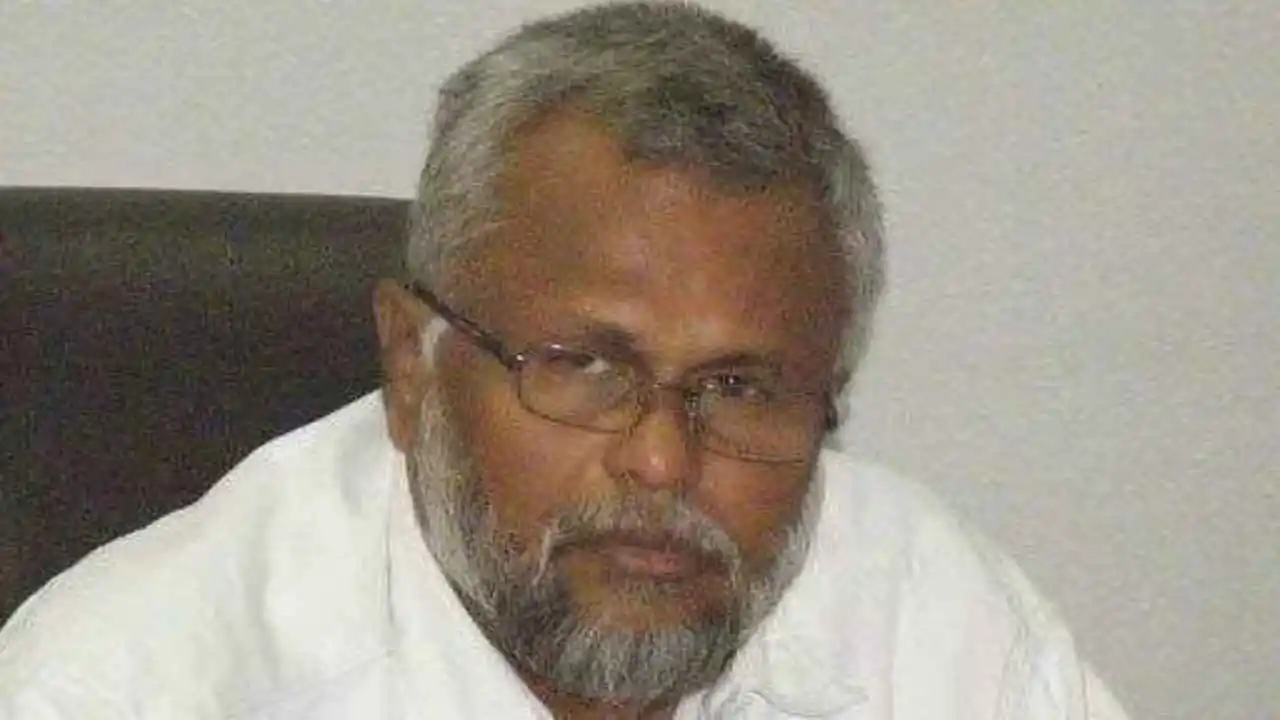
Sri Lankan Minister Douglas Devananda has said the statements from some political leaders in India on reclaiming Katchatheevu from the island nation have no ground. He told the media on Thursday that it is not unusual to hear such claims and counterclaims about the strategic island as elections are taking place in India.
The Sri Lankan Minister said he thought India is acting on its interests to secure this place to ensure Sri Lankan fishermen would not have any access to that area and that Sri Lanka should not claim any rights in that resourceful area. According to the 1974 agreement, Devananda said Indian and Sri Lankan fishermen can go fishing in the territorial waters of both countries until the pact was reviewed and amended in 1976.
The amended agreement resulted in fishermen from both countries being barred from fishing in neighboring waters. India’s ministry of External Affairs (MEA) on Thursday steered clear of the row surrounding Katchatheevu island. To a volley of questions on the Katchatheevu issue, MEA spokesperson Randhir Jaiswal reffered to External affairs Minister S Jaishankar’s recent comments on the matter.
He said he would like to talk about the issue that has been raised. He added the External Affairs minister has spoken to the press here in Delhi and also in Gujarat and has clarified all the issues. He said everyone should look into the press engagements and they would find the answers to their questions there.
The remarks from Devananda, a Sri Lankan Tamil, came days after the Narendra Modi government accused the Congress and its ally DMK in Tamil Nadu of overlooking national interests by handing over Katchatheevu island to Sri Lanka in 1974. The BJP has also been slamming the 2 parties for not ensuring the rights of the fishermen wanting to fish in waters around the island.
-

 Entertainment12 hours ago
Entertainment12 hours agoBollywood stars Vidya Balan, Kartik Aaryan, Pratik Gandhi, Ileana D’Cruz, Mouni Roy, Radhika Madan, Mrunal Thakur attend Do Aur Do Pyaar premiere
-

 LATEST SPORTS NEWS16 hours ago
LATEST SPORTS NEWS16 hours agoIPL 2024: Delhi Capitals thrash Gujarat Titans by 6 wickets
-

 Cricket news10 hours ago
Cricket news10 hours agoHappy Birthday KL Rahul: Suniel Shetty wishes son-in-law KL Rahul on his 32nd birthday
-
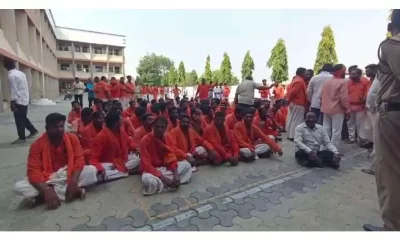
 India News14 hours ago
India News14 hours agoReligious outfit vandalises The Blessed Mother Teresa High School in Telangana after teachers object to students wearing Hanuman Deeksha dress
-
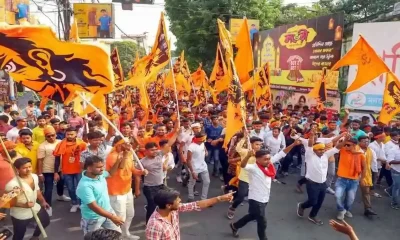
 India News15 hours ago
India News15 hours agoClashes erupt during Ram Navami procession in West Bengal’s Murshidabad district
-

 India News9 hours ago
India News9 hours agoEnforcement Directorate seizes Shilpa Shetty’s husband Raj Kundra’s properties worth Rs 97 crore
-
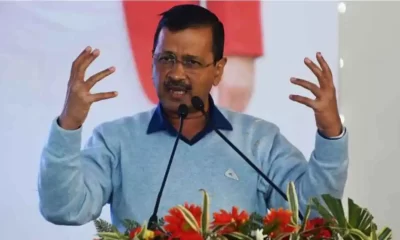
 India News8 hours ago
India News8 hours agoEnforcement Directorate says Arvind Kejriwal is deliberately eating mangoes, sweets, taking sugar with tea to increase his blood sugar level and create ground for bail



